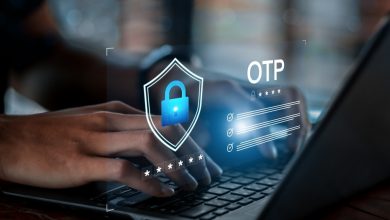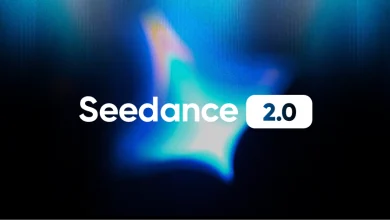
In the fast-paced world of digital marketing, small brands often face the challenge of standing out in a crowded marketplace. With limited budgets and resources, competing against larger companies with massive advertising budgets can seem daunting. However, one strategy has leveled the playing field: influencer marketing. By partnering with an influencer marketing agency, small brands can tap into the power of authentic, targeted, and cost-effective campaigns to boost brand awareness, engagement, and sales. In this blog, we’ll uncover the secrets to making influencer marketing work for small brands, offering actionable insights to help you succeed. We’ll also explore how artificial intelligence (AI) can further amplify these efforts, providing a competitive edge.
Why Influencer Marketing is a Game-Changer for Small Brands
Influencer marketing has transformed how brands connect with their audiences. Unlike traditional advertising, which often feels impersonal and sales-driven, influencer marketing leverages the trust and relatability of content creators. According to a 2024 study by Influencer Marketing Hub, 90% of consumers trust recommendations from influencers over brand advertisements. For small brands, this presents a unique opportunity to build credibility and reach niche audiences without breaking the bank.
The key to success lies in strategic execution, and an influencer marketing agency can guide small brands through the process, ensuring every campaign delivers maximum impact. From identifying the right influencers to crafting authentic content, here are the secrets to making influencer marketing work for your small brand.
Secret #1: Focus on Micro- and Nano-Influencers
One of the biggest misconceptions about influencer marketing is that you need to partner with mega-influencers with millions of followers to see results. For small brands, this couldn’t be further from the truth. Micro-influencers (10,000–100,000 followers) and nano-influencers (1,000–10,000 followers) often deliver higher engagement rates and more targeted audiences than their macro counterparts.
Why are micro- and nano-influencers so effective? Their smaller follower base allows them to build stronger, more personal connections with their audience. A 2024 report by Hootsuite found that micro-influencers achieve engagement rates of up to 7%, compared to just 1–2% for macro-influencers. Additionally, these influencers are often more affordable, making them ideal for small brands with limited budgets.
An influencer marketing agency can help small brands identify micro- and nano-influencers whose audiences align with their target market. AI-powered platforms now use data to analyze an influencer’s past performance, audience demographics, and content themes to find the perfect match. For example, a small skincare brand might use AI to find a micro-influencer who specializes in natural beauty and whose followers are primarily in a specific age group, ensuring their products reach an audience that’s already interested in their niche.
Secret #2: Prioritize Authenticity Over Perfection
Consumers today are savvy—they can spot inauthentic content from a mile away. For small brands, authenticity is the cornerstone of successful influencer marketing. Influencers who genuinely believe in your product are more likely to create content that resonates with their audience, driving trust and conversions.
To ensure authenticity, give influencers creative freedom to showcase your products in their unique style. For instance, instead of providing a rigid script, allow them to integrate your product into their daily routine or share a personal story about how it solved a problem for them. This approach feels organic and builds trust with their followers.
An influencer marketing agency can facilitate this process by negotiating partnerships that balance creative freedom with brand guidelines. They can also use AI tools to monitor content for brand safety and sentiment analysis, ensuring the message is both authentic and aligned with your brand’s values.
Secret #3: Leverage Niche Audiences for Targeted Impact
One of the biggest advantages of influencer marketing for small brands is the ability to reach highly targeted audiences. Unlike traditional ads that cast a wide net, influencer marketing allows you to connect with niche communities that are already interested in your products or services.
For example, a small brand selling eco-friendly home goods could partner with influencers who focus on sustainability and zero-waste lifestyles. These influencers have dedicated followers who are passionate about environmentally conscious products, making them more likely to engage with and purchase from your brand.
An influencer marketing agency uses AI-driven tools to identify influencers whose audiences match your ideal customer profile with a level of precision that was previously impossible. By analyzing data points like demographics, interests, and even purchasing behaviors, AI can pinpoint the most relevant niche markets. By focusing on niche markets, small brands can achieve higher conversion rates and build a loyal customer base.
Secret #4: Collaborate with an Influencer Marketing Agency
While it’s possible to manage influencer marketing in-house, small brands often lack the time, expertise, or resources to execute campaigns effectively. This is where an influencer marketing agency becomes invaluable. These agencies specialize in every aspect of influencer marketing, from strategy development to performance tracking, allowing small brands to focus on their core operations.
Here’s how an influencer marketing agency, powered by AI, can help:
- Influencer Discovery: Agencies use advanced AI tools to find influencers who not only align with your brand values but also have a high probability of delivering a positive ROI based on predictive analytics.
- Campaign Management: From negotiating contracts to coordinating content creation, agencies handle the logistics, saving you time and effort. AI-powered scheduling and communication tools streamline the entire process.
- Performance Analytics: Agencies provide detailed reports on metrics like reach, engagement, and ROI, and AI algorithms can predict campaign outcomes and recommend optimizations in real-time.
- Budget Optimization: Agencies can maximize your budget by identifying cost-effective influencers and strategies that deliver results. AI helps by modeling different campaign scenarios to find the most efficient use of your funds.
By partnering with an influencer marketing agency, small brands can scale their influencer marketing efforts efficiently and achieve professional results without a steep learning curve.
Secret #5: Create Long-Term Partnerships
While one-off influencer campaigns can generate buzz, long-term partnerships are the secret to building lasting brand loyalty. When influencers consistently feature your products over time, their audience begins to associate your brand with trust and reliability. This repeated exposure strengthens brand recall and drives repeat purchases.
For small brands, long-term partnerships are also cost-effective. Instead of constantly onboarding new influencers, you can build relationships with a select group of creators who become brand ambassadors. These ambassadors can share ongoing content, such as product updates, tutorials, or behind-the-scenes looks at your brand.
An influencer marketing agency can help structure these partnerships, ensuring both parties benefit from a mutually rewarding collaboration. They can also use AI to predict the longevity and success of a partnership, helping you invest in relationships that will yield the best long-term results.
Secret #6: Embrace User-Generated Content (UGC)
User-generated content (UGC) is a powerful byproduct of influencer marketing. When influencers create content featuring your products, it often doubles as UGC, which can be repurposed across your own marketing channels. For example, you can share an influencer’s Instagram post on your brand’s social media or feature their YouTube review on your website.
UGC is highly effective because it feels authentic and relatable. A 2023 study by Stackla found that 79% of consumers say UGC highly impacts their purchasing decisions. For small brands, repurposing influencer content as UGC is a cost-effective way to amplify your marketing efforts without creating new assets from scratch.
An influencer marketing agency can guide you in selecting influencers who produce high-quality UGC and help you integrate this content into your broader marketing strategy. AI tools can also automatically identify and categorize high-quality UGC from campaigns, making it easy to discover and reuse.
Secret #7: Measure and Optimize for Success
To make influencer marketing work for your small brand, you need to track performance and optimize your campaigns over time. Key metrics to monitor include:
- Reach and Impressions: How many people saw the influencer’s content?
- Engagement: How many likes, comments, shares, or clicks did the content generate?
- Conversions: Did the campaign drive traffic to your website or result in sales?
- ROI: Did the campaign deliver a positive return on investment?
An influencer marketing agency can provide detailed analytics and insights, helping you understand what’s working and what needs improvement. For example, if a campaign with a particular influencer didn’t drive conversions, the agency might recommend adjusting the CTA or targeting a different audience segment.
Common Challenges and How to Overcome Them
While influencer marketing offers immense potential, small brands may face challenges such as:
- Limited Budgets: Small brands can overcome this by focusing on micro- and nano-influencers or offering product gifting instead of cash payments.
- Finding the Right Influencers: An influencer marketing agency can streamline this process using data-driven tools.
- Measuring ROI: Agencies provide analytics to track performance and ensure campaigns deliver value.
- Maintaining Authenticity: Work with influencers who genuinely align with your brand to avoid inauthentic content.
An influencer marketing agency can provide detailed analytics and insights. AI algorithms can analyze these metrics to provide predictive insights, such as which content formats or influencers are most likely to convert customers. This allows for real-time adjustments and helps you understand what’s working and what needs improvement.
How to Get Started with Influencer Marketing
- Hyper-Personalized Influencer Matching: Instead of manually searching for influencers, AI platforms analyze millions of data points—including follower demographics, past content performance, brand affinity, and audience sentiment—to find the perfect match. This ensures your brand is paired with an influencer whose audience is not just large, but deeply aligned with your product.
- Predictive Analytics for ROI: AI can predict the potential success of a campaign before it even starts. By analyzing historical data from similar campaigns, AI can forecast key metrics like engagement rates and conversions, helping you allocate your budget to the influencers most likely to deliver a positive return on investment. This minimizes risk and maximizes efficiency.
- Automated Content and Trend Analysis: AI tools can monitor social media trends and analyze what kind of content is performing best in your niche. This provides valuable insights that you can share with influencers, helping them create content that is both authentic to them and timely for their audience. AI can also help generate content briefs and even suggest creative ideas based on trending topics.
- Fraud Detection: In the influencer space, “follower fraud” is a real concern. AI can quickly identify fake followers, bot activity, and inflated engagement rates, ensuring you’re investing in genuine influencers with real audiences. This protects your budget and brand reputation.
- Efficient Communication and Management: AI-powered tools can automate much of the campaign management process, from sending initial outreach emails to tracking deadlines and payments. This frees up time for you and the influencer, allowing for a smoother, more collaborative partnership.
By integrating AI into their influencer marketing strategy, small brands can make more informed decisions, automate tedious tasks, and gain a significant advantage over competitors, all while operating on a limited budget.
The Future of Influencer Marketing for Small Brands
As digital platforms continue to evolve, influencer marketing will remain a cornerstone of small brand success. Its ability to deliver authentic, targeted, and cost-effective results makes it an ideal strategy for businesses with limited resources. With the help of AI, small brands can now navigate the complexities of influencer marketing with greater precision and efficiency. By partnering with an influencer marketing agency that uses these advanced tools, small brands can achieve measurable results and compete with industry giants.
In conclusion, the secret to making influencer marketing work for small brands lies in focusing on micro- and nano-influencers, prioritizing authenticity, targeting niche audiences, and leveraging the combined expertise of an influencer marketing agency and powerful AI tools. With the right strategy, small brands can build loyal communities and drive sustainable growth in today’s competitive digital landscape.






